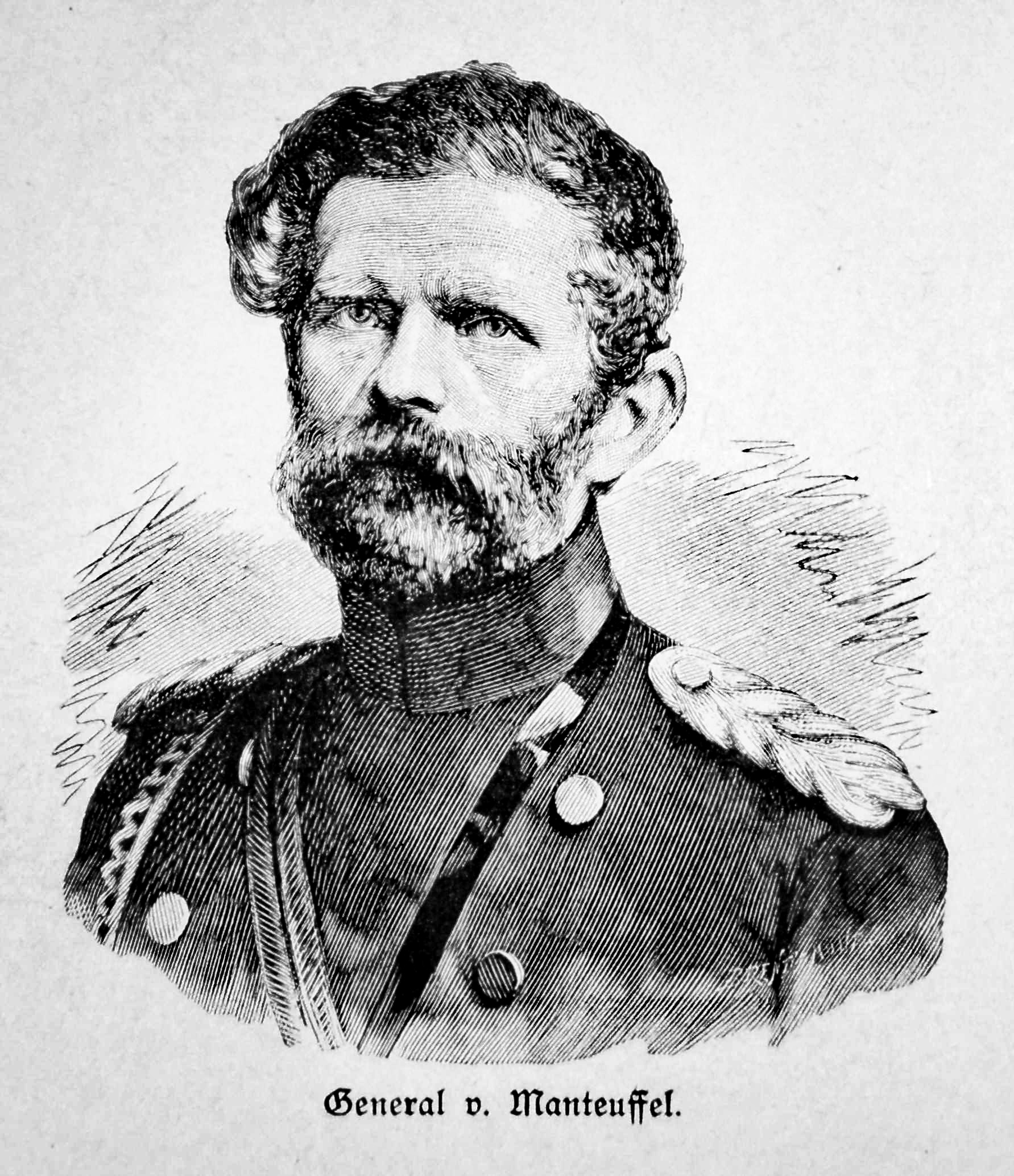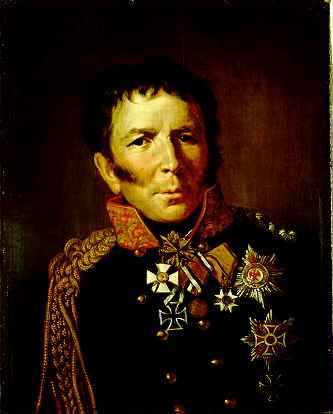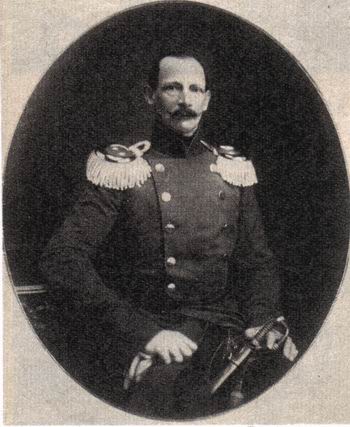|
Edwin Freiherr Von Manteuffel
Edwin Karl Rochus Freiherr von Manteuffel (24 February 180917 June 1885) was a Prussian ''Generalfeldmarschall'' noted for his victories in the Franco-Prussian War, and the first Imperial Lieutenant (german: Reichsstatthalter) of Alsace–Lorraine from 1879 until his death. Biography Son of the president of the superior court of Magdeburg, Manteuffel was born at Dresden and brought up with his cousin, Otto von Manteuffel (1805–1882), the Prussian statesman. He entered the guards cavalry at Berlin in 1827 and became an officer in 1828. After attending the War Academy for two years, and serving successively as '' aide-de-camp'' to General von Müffling and to Prince Albert of Prussia, he was promoted captain in 1843 and major in 1848, when he became ''aide-de-camp'' to Frederick William IV, whose confidence he had gained during the revolutionary movement in Berlin. Promoted lieutenant-colonel in 1852, and colonel (and commanding officer of the 5th Uhlans) in 1853, Manteuf ... [...More Info...] [...Related Items...] OR: [Wikipedia] [Google] [Baidu] |
Freiherr
(; male, abbreviated as ), (; his wife, abbreviated as , literally "free lord" or "free lady") and (, his unmarried daughters and maiden aunts) are designations used as titles of nobility in the German-speaking areas of the Holy Roman Empire and in its various successor states, including Austria, Prussia, Bavaria, Liechtenstein, Luxembourg, etc. Traditionally, it denotes the titled rank within the nobility above ' (knight) and ' (nobility without a specific title) and below ' ( count, earl). The title superseded the earlier medieval form, '. It corresponds approximately to the English ''baron'' in rank. The Duden orthography of the German language references the French nobility title of '' Baron'', deriving from the latin-germanic combination ''liber baro'' (which also means "free lord"), as corresponding to the German "Freiherr"; and that ''Baron'' is a corresponding salutation for a ''Freiherr''. Duden; Definition of ''Baron, der'' (in German)/ref> ' in the feudal syst ... [...More Info...] [...Related Items...] OR: [Wikipedia] [Google] [Baidu] |
Reichsstatthalter
The ''Reichsstatthalter'' (, ''Imperial lieutenant'') was a title used in the German Empire and later in Nazi Germany. ''Statthalter des Reiches'' (1879–1918) The office of ''Statthalter des Reiches'' (otherwise known as ''Reichsstatthalter'') was instituted in 1879 by the German Empire for the areas of Alsace (''Elsaß'') and Lorraine (''Lothringen'') that France had ceded to Germany following the Franco-Prussian War. It was a form of governorship intended to exist while Alsace-Lorraine became a federal state of the Empire. It was abolished when Alsace-Lorraine was, in turn, ceded back to France after Germany lost World War I. Nazi Germany During the Third Reich, the Nazis re-created the office of ''Reichsstatthalter'' (Reich Governor or Reich Deputy) to gain direct control over all states (other than Prussia) after winning the general elections of 1933. Their independent state governments and parliaments were successively abolished, and the Reich government took ... [...More Info...] [...Related Items...] OR: [Wikipedia] [Google] [Baidu] |
Lieutenant-general
Lieutenant general (Lt Gen, LTG and similar) is a three-star military rank (NATO code OF-8) used in many countries. The rank traces its origins to the Middle Ages, where the title of lieutenant general was held by the second-in-command on the battlefield, who was normally subordinate to a captain general. In modern armies, lieutenant general normally ranks immediately below general and above major general; it is equivalent to the navy rank of vice admiral, and in air forces with a separate rank structure, it is equivalent to air marshal. A lieutenant general commands an army corps, made up of typically three army divisions, and consisting of around 60 000 to 70 000 soldiers (U.S.). The seeming incongruity that a lieutenant general outranks a major general (whereas a major outranks a lieutenant) is due to the derivation of major general from sergeant major general, which was a rank subordinate to lieutenant general (as a lieutenant outranks a sergeant major). In contrast ... [...More Info...] [...Related Items...] OR: [Wikipedia] [Google] [Baidu] |
Duel
A duel is an arranged engagement in combat between two people, with matched weapons, in accordance with agreed-upon rules. During the 17th and 18th centuries (and earlier), duels were mostly single combats fought with swords (the rapier and later the small sword), but beginning in the late 18th century in England, duels were more commonly fought using pistols. Fencing and shooting continued to co-exist throughout the 19th century. The duel was based on a code of honor. Duels were fought not so much to kill the opponent as to gain "satisfaction", that is, to restore one's honor by demonstrating a willingness to risk one's life for it, and as such the tradition of dueling was originally reserved for the male members of nobility; however, in the modern era, it extended to those of the upper classes generally. On occasion, duels with swords or pistols were fought between women. Legislation against dueling goes back to the medieval period. The Fourth Council of the Lateran (1 ... [...More Info...] [...Related Items...] OR: [Wikipedia] [Google] [Baidu] |
Karl Twesten
Karl Twesten (April 22, 1820 in Kiel – October 14, 1870 in Berlin) was a German politician and author. Biography He was the son of German theologian August Detlev Christian Twesten. He became connected with the judicial service, and was one of the founders of the progressive party, which in 1861 involved him in a duel with Gen. Edwin von Manteuffel, in which he lost his right arm. In the same year, he was elected to the Prussian chamber of deputies (german: Preußisches Abgeordnetenhaus), and he was one of the founders of the National Liberal Party and an early member of the North German Reichstag (german: Reichstag des Norddeutscher Bundes). Persecuted for advocating the fullest parliamentary freedom, he retired in 1868 after being fined. Works * ''Schiller in seinem Verhältniss zur Wissenschaft'' ("Friedrich Schiller in his relationship to knowledge"; Berlin, 1863). * '' Machiavelli'' (1868) * ''Die religiösen, politischen und socialen Ideen der asiatischen Culturvölk ... [...More Info...] [...Related Items...] OR: [Wikipedia] [Google] [Baidu] |
German Imperial Military Cabinet
The Military Cabinet (''Militärkabinett'') was a military advisory body under the direct command of the King of Prussia, and by extension the German Emperor after 1871, for handling personnel matters of the army officer corps. It emerged from the Prussian Army personnel department in the wake of the 1809 reform of the military, and was officially established 3 June 1814. It developed under Emperor Wilhelm II into a personal instrument of the monarch for processing all military matters. The Chief of the Military Cabinet (''Chef des Militärkabinetts'') was often at the same time Adjutant General (chief aide-de-camp) to the monarch and subordinate only to him. The king appointed all members of the Military Cabinet and the chief had the coveted '' Immediatvortrag'', direct personal access to the king, which even the chief of the Great General Staff and the Minister of War did not have. The cabinet was essentially a privy council to the monarch and its constitutional position w ... [...More Info...] [...Related Items...] OR: [Wikipedia] [Google] [Baidu] |
St Petersburg
Saint Petersburg ( rus, links=no, Санкт-Петербург, a=Ru-Sankt Peterburg Leningrad Petrograd Piter.ogg, r=Sankt-Peterburg, p=ˈsankt pʲɪtʲɪrˈburk), formerly known as Petrograd (1914–1924) and later Leningrad (1924–1991), is the List of cities and towns in Russia by population, second-largest city in Russia. It is situated on the Neva River, at the head of the Gulf of Finland on the Baltic Sea, with a population of roughly 5.4 million residents. Saint Petersburg is the List of European cities by population within city limits, fourth-most populous city in Europe after Istanbul, Moscow and London, the List of cities and towns around the Baltic Sea, most populous city on the Baltic Sea, and the world's List of northernmost items#Cities and settlements, northernmost city of more than 1 million residents. As Russia's Imperial capital, and a Ports of the Baltic Sea, historically strategic port, it is governed as a Federal cities of Russia, federal city. ... [...More Info...] [...Related Items...] OR: [Wikipedia] [Google] [Baidu] |
Vienna
en, Viennese , iso_code = AT-9 , registration_plate = W , postal_code_type = Postal code , postal_code = , timezone = CET , utc_offset = +1 , timezone_DST = CEST , utc_offset_DST = +2 , blank_name = Vehicle registration , blank_info = W , blank1_name = GDP , blank1_info = € 96.5 billion (2020) , blank2_name = GDP per capita , blank2_info = € 50,400 (2020) , blank_name_sec1 = HDI (2019) , blank_info_sec1 = 0.947 · 1st of 9 , blank3_name = Seats in the Federal Council , blank3_info = , blank_name_sec2 = GeoTLD , blank_info_sec2 = .wien , website = , footnotes = , image_blank_emblem = Wien logo.svg , blank_emblem_size = Vienna ( ; german: Wien ; ... [...More Info...] [...Related Items...] OR: [Wikipedia] [Google] [Baidu] |
Uhlan
Uhlans (; ; ; ; ) were a type of light cavalry, primarily armed with a lance. While first appearing in the cavalry of Lithuania and then Poland, Uhlans were quickly adopted by the mounted forces of other countries, including France, Russia, Prussia, Saxony and Austria-Hungary. Uhlans traditionally wore a double-breasted short-tailed jacket with a coloured 'plastron' panel at the front, a coloured sash, and a square-topped Polish lancer cap (, also called ). This cap or cavalry helmet was derived from a traditional design of Polish cap, formalised and stylised for military use. Their lances were traditionally topped with a small, swallow-tailed flag (''pennon'') just below the spearhead. Etymology There are several suggested etymologies for the word uhlan. In the Turkic languages, ''oğlan'' means '' young man'' or ''boy''. It is probable that this entered Polish via Tatar or Turkish and was styled as ''ułan''. The Polish spelling was then adopted by German, French and oth ... [...More Info...] [...Related Items...] OR: [Wikipedia] [Google] [Baidu] |
Frederick William IV Of Prussia
Frederick William IV (german: Friedrich Wilhelm IV.; 15 October 17952 January 1861), the eldest son and successor of Frederick William III of Prussia, reigned as King of Prussia from 7 June 1840 to his death on 2 January 1861. Also referred to as the " romanticist on the throne", he is best remembered for the many buildings he had constructed in Berlin and Potsdam as well as for the completion of the Gothic Cologne Cathedral. In politics, he was a conservative, who initially pursued a moderate policy of easing press censorship and reconciling with the Catholic population of the kingdom. During the German revolutions of 1848–1849, he at first accommodated the revolutionaries but rejected the title of Emperor of the Germans offered by the Frankfurt Parliament in 1849, believing that Parliament did not have the right to make such an offer. He used military force to crush the revolutionaries throughout the German Confederation. From 1849 onward he converted Prussia into a cons ... [...More Info...] [...Related Items...] OR: [Wikipedia] [Google] [Baidu] |
Prince Albert Of Prussia (1809–1872)
Prince Frederick Henry Albert of Prussia (german: Friedrich Heinrich Albrecht; 4 October 1809 – 14 October 1872) was the fifth son and youngest child of King Frederick William III of Prussia and Louise of Mecklenburg-Strelitz. His parents had fled to East Prussia after the occupation of Berlin by Napoleon, and Albert was born in Königsberg. Two of Albert's elder brothers were Frederick William IV, King of Prussia from 1840 till 1861, and William I, King of Prussia from 1861 to 1888 and German Emperor from 1871 until 1888. Career In 1819 he joined the Prussian Army as a lieutenant and held the rank of a general of cavalry in 1852. He took part in the 1866 Austro-Prussian War as a cavalry corps commander at the battles of Gitschin and Königgrätz. In the Franco-Prussian War of 1870/71 he led a cavalry division at the battles of Wissembourg, Wörth and Sedan. He later joined the forces of his nephew Prince Frederick Charles of Prussia and Frederick Francis II, Grand Duke ... [...More Info...] [...Related Items...] OR: [Wikipedia] [Google] [Baidu] |
Karl Freiherr Von Müffling
Friedrich Karl Ferdinand Freiherr von Müffling, nicknamed Weiss (12 June 177510 January 1851) was a Prussian ''Generalfeldmarschall'' and military theorist. He served as Blücher's liaison officer in Wellington's headquarters during the Battle of Waterloo and was one of the organizers of the final victory over Napoleon. After the wars he served a diplomatic role at the Congress of Aix-la-Chappelle and was a major contributor to the development of the Prussian General Staff as Chief. Müffling also specialized in military topography and cartography. Biography Born in Halle, Müffling entered the Prussian army in 1790. In 1799 Müffling contributed to a military dictionary edited by Lieutenant W. von Leipziger, and in the winter of 1802-1803, being then a subaltern, he was appointed to the newly formed general staff as quartermaster-lieutenant. He had already done survey work, and was now charged with survey duties under the astronomer Franz Xaver, Baron Von Zach (1754–1832). I ... [...More Info...] [...Related Items...] OR: [Wikipedia] [Google] [Baidu] |




.jpg)

_-_Full_dress.gif)